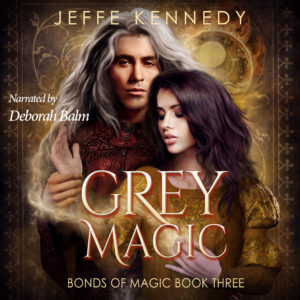
GREY MAGIC is out in audiobook! All three Bonds of Magic books are now live on Audible for your glomming pleasure!
This week at the SFF Seven, we’re offering tips for expanding your author platform.
Write more books!
RITA ® Award-Winning Author of Fantasy Romance
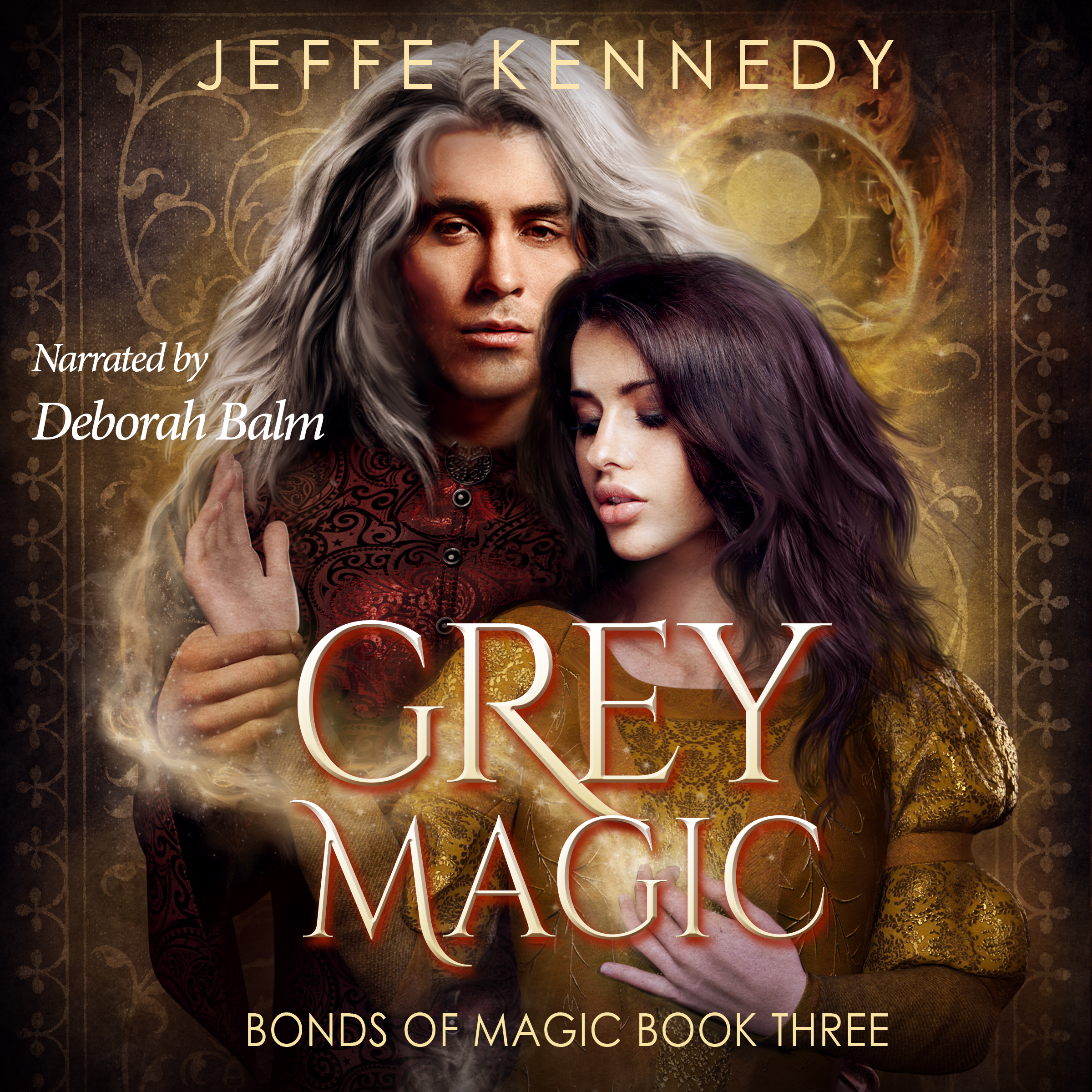

GREY MAGIC is out in audiobook! All three Bonds of Magic books are now live on Audible for your glomming pleasure!
This week at the SFF Seven, we’re offering tips for expanding your author platform.
Write more books!
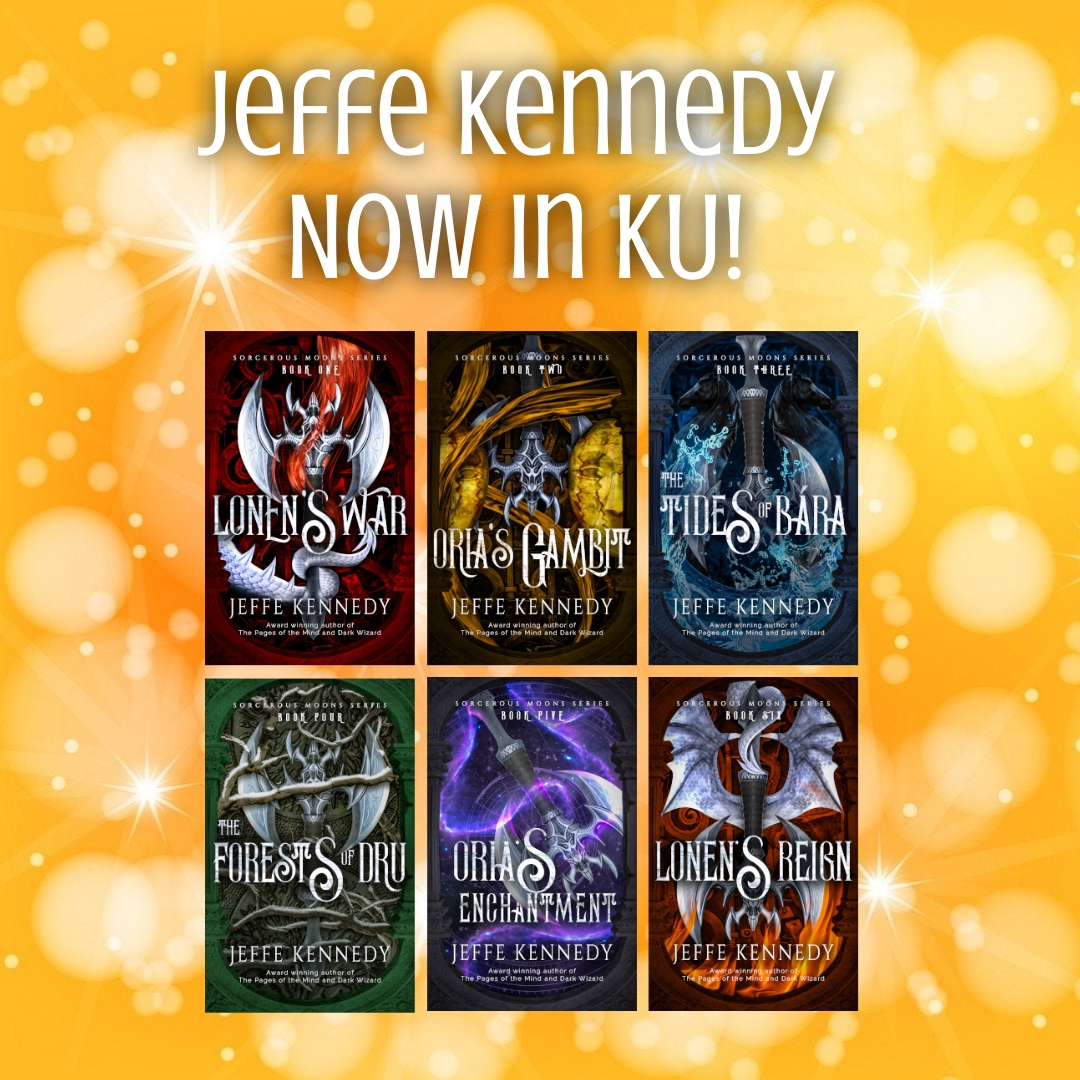

Ah, the much-discussed, celebrated, and labored over first line… Is it that important?
(See what I did there?)
Many in the writing and publishing world will go on at length on the critical importance of the opening line of any work, long or short. There are long-standing contests for opening lines – brilliant or cringingly terrible. Writers are expected to trot our their favorite first lines (which I notice is also part of this week’s assignment at the SFF Seven). But do those opening lines deserve the significance they’re given?
Yes and no. The thing is, first lines are low-hanging fruit. They’re easy to pick on. They require very little reading and it’s easy to analyze a single line of text. For the teachers, coaches, and advice-givers of all stripes, an opening line is a simple aspect of a work to assess. In that way, they’re probably given far more emphasis than they deserve.
Unfortunately, a whole lot of the advice out there – not unlike a lot of writing advice – isn’t terribly helpful. Writers are told that their opening line must “hook” the reader, who is presumably like a fish in this analogy, and reel them in to keep reading more. And hopefully buy the work in question.
And people rhapsodize over favorite opening lines, analyzing brilliance, but – again – this rarely yields useful advice on how to write them.
I spent a lot of years not sure what made an opening line a good one or not. Only recently, with a bunch of published works behind me, have I come across actually useful advice on how to craft an opening line: It needs to establish the sort of story it is, and pose some sort of question. It doesn’t have to be a literal question, but it should invite the reader to wonder about something of interest to them.
A famous example of this is Elizabeth Barrett Browning’s poem How Do I Love Thee. (Those who listen to my podcast, First Cup of Coffee, know I’ve been going down an Elizabeth Barrett Browning/Robert Browning rabbit hole lately. I blame Connie Willis.) Almost anyone can quote the opening line, even if they don’t know the rest of the poem:
How do I love thee? Let me count the ways.
What does this line do? It establishes that the work is a love poem, and invites the reader to wonder about what those ways are.
Thus, my opening line above: I established what sort of writing this is – an informational article on first lines – and I posed a literal question that I’d be addressing.
Once I figured out this was all I needed to do, it made crafting that opening line much easier! Here’s one of the first ones that I used this technique to write, from DARK WIZARD.
Gabriel Phel crested the last ridge of the notorious Knifeblade Mountains that guarded Elal lands on nearly three sides, and faced the final barrier.
This first line isn’t brilliant by any stretch. What it does, however, is inform the reader that this is an alternate fantasy world, and it invites them to wonder about who Gabriel Phel is, why he’s in this inhospitable land, and what this final barrier is. That’s it. And you know what? It works. That book has done a better job of hooking new readers than anything else of mine. I think there are other reasons for that book’s success, but I think that opening helps.
What’s most important to remember is: just because the first line comes first, that doesn’t mean it has to be written first. Certainly not perfected first. A lot of writers spend forever crafting that opening, trying to get it perfect – possibly because of this emphasis on first lines – and can circle that effort endlessly. That’s my second piece of advice. Craft the opening once the work is finished, or at least drafted. It will wait. And that gives that low-hanging fruit time to ripen.
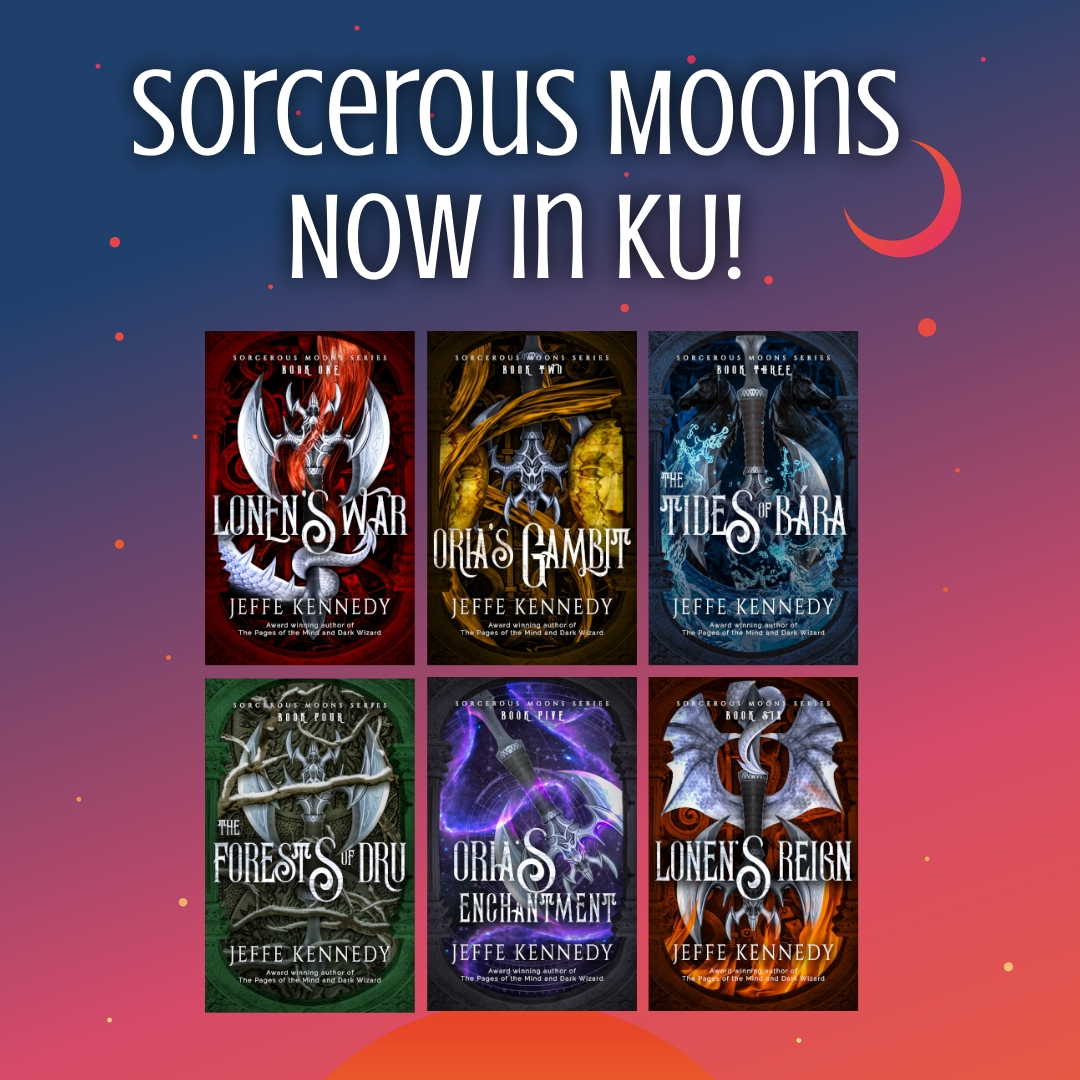
My series rebrand of the six-book epic romantic fantasy saga, Sorcerous Moons, is complete! Book One, LONEN’S WAR, releases Friday, with each subsequent book releasing one/day for the following week.
This is my first (and possibly last!) real test of whether my books can be successful in KU. I’ve run A/B tests before and I’ve always made 2-3x as much money in sales on Amazon alone than via page reads in KU. But we shall see! Tell your KU-loving friends. 😀
Our topic this week at the SFF Seven is The Write Stuff: What five effective work habits make a professional writer the most successful? I can only tell you mine and that’s defining “success” as being productive. The other kind of success – fame, money, adulation, awards – depends hugely on timing and serendipity. But we’re focusing on work habits, so here are mine:
1. Consistency
You don’t have to write every day, at the same time every day – though I do extoll that as THE single most effective method for building a consistent writing habit – but consistency is key. I build my schedule around protecting my writing time and that habit carries me through all sorts of difficulties.
2. Persistence
The other piece of building a writing habit is keeping it going. So many writers give up without finishing a book – or finishing multiple books! – or they give up after a few books. Or, when attempting to write consistently, they take time off, change their minds, prioritize something else. Persistence is what gets words on the page.
3. Focus
Shut out the world, ignore the new shinies and frolicking plot bunnies. Close the office door, put in the noise-cancelling ear buds, disconnect the internet and silence the phone. Focus on the writing and only on the writing for the time that you’re doing it. Think about the story and only that. All other considerations come later.
4. Integrity
Write what you believe in and write it your way. Don’t chase trends or try to make your stories a clone of someone else’s. This may not seem like an effective work habit, but it is! Keeping to the integrity of the story YOU are telling allows you to focus on that and not the market, or whatever the loud voices are currently shouting about.
5. Flexibility
The previous four have all been about ritual and drawing firm lines, but with those come a need for flexibility. Be ready to change up what you’re doing if you have to. Reinvent yourself regularly. Try rebranding series and putting it in Kindle Unlimited. (See what I did there?) The world changes, sometimes rapidly, and we have to be ready to change with it.
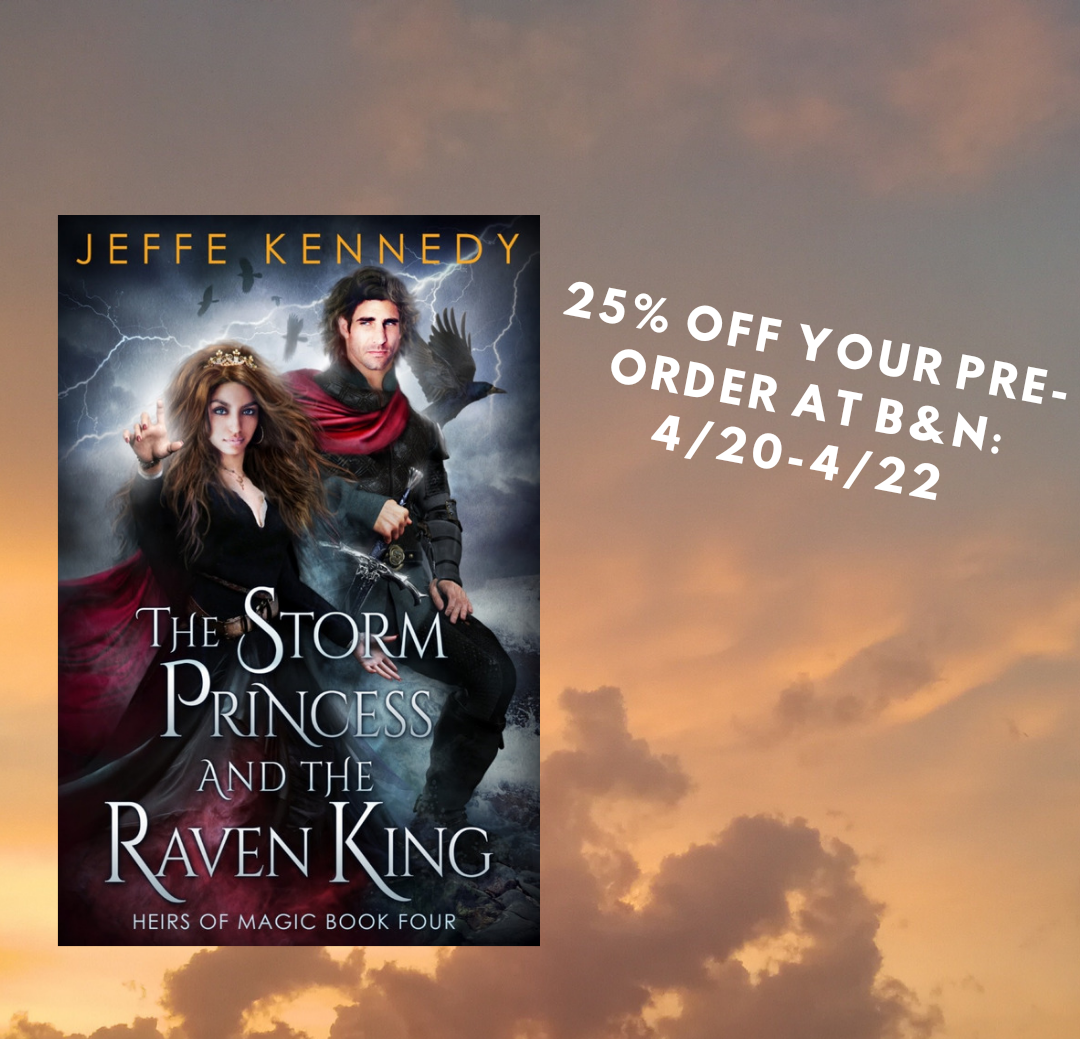
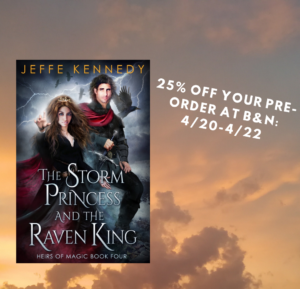
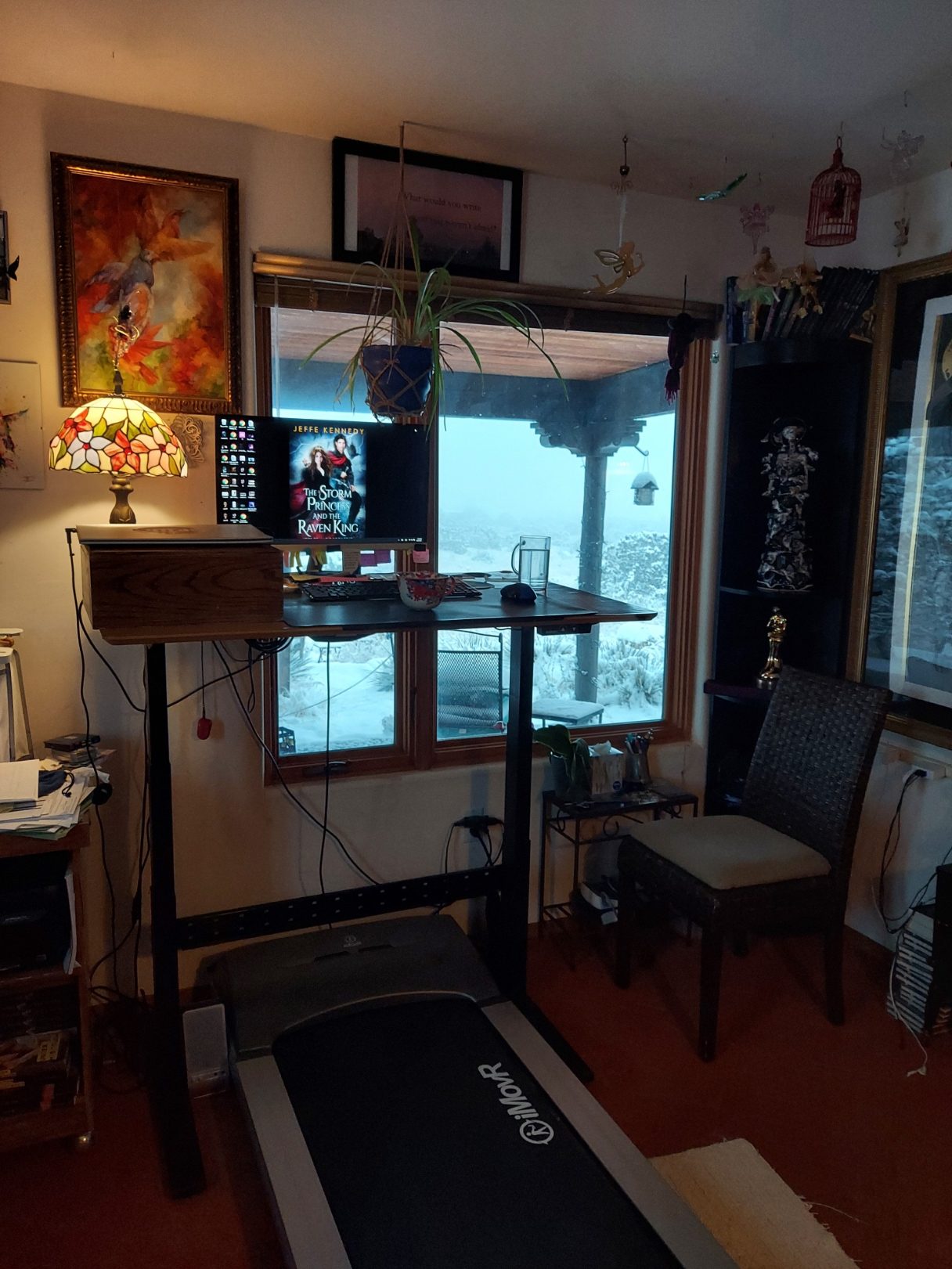
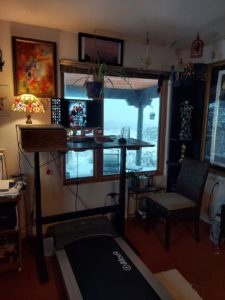
This week at the SFF Seven, we’re sharing our writing workspaces and current TBR list.
Why both of these somewhat disparate things? I have no idea. My TBR isn’t physical (mostly). I keep my inventory of unread books on a – you guessed it! – spreadsheet. There are currently 323 books on it.
I know.
I’ve been working my way through it, really I am, but even my determined efforts end up being like fighting the hydra. For example, I’ve had Juliet Marillier’s Daughter of the Forest on my To-Be-Read “pile” since April 19, 2017. (Thank you, Amazon for that purchase date.) I finally started reading it on February 12, 2022. LOVED IT. So, what did I do? Yes, bought the entire six-book Sevenwaters series. I’m now 60% through book six, Flame of Sevenwaters. By removing one book from my TBR list, I ended up buying five more and spending more than a month bingeing Juliet Marilllier and not addressing any of the books I already have. And I might not stop here. There’s a couple other books of hers that I’m eyeing. We’ll see how I feel when I finish this one.
As for my writing space, I have a dedicated office that is ALL MINE. You can see it above. We got an unexpectedly heavy snow last night, so it’s a darkish morning and you can see the snow out the window. I love my big window as I can watch the birds and other visiting wildlife (and they are merry), and I can see all the way down the Galisteo Basin to the Ortiz Mountains and Sandia Peak. My desk is hydraulic, so I can adjust it for sitting, standing, or walking, with my treadmill below.
I used to have my framed book covers on the walls, but I realized I didn’t like looking at stuff that represented past efforts. So, I took them all down and hung art that’s inspiring to me. The poster over the window is one I made that says, “What would you write if you weren’t afraid?”
And there you have it!
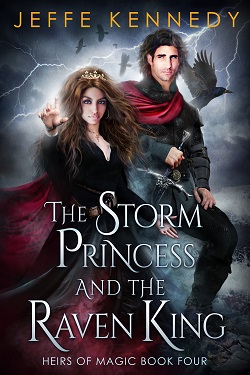
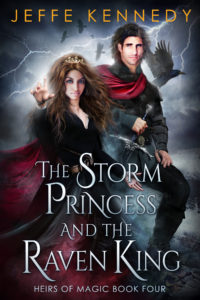
This week at the SFF Seven we’re giving a shoutout to our favorite book-adjacent creative! (Be it cover artist, free-lance editor, web designer, etc.) I’d be remiss if I didn’t shout to the heavens about the talents of Ravven, my cover artist.
I swear, sometimes I think I wouldn’t have an indie career without her!
Ravven is just a hugely talented cover artist with the phenomenal ability to simultaneously nail genre, find exactly the image that’s in my mind, and create a brilliant work of art.
These are the two most recent covers she’s done for me, and they’re just fabulous. All the love to Ravven!
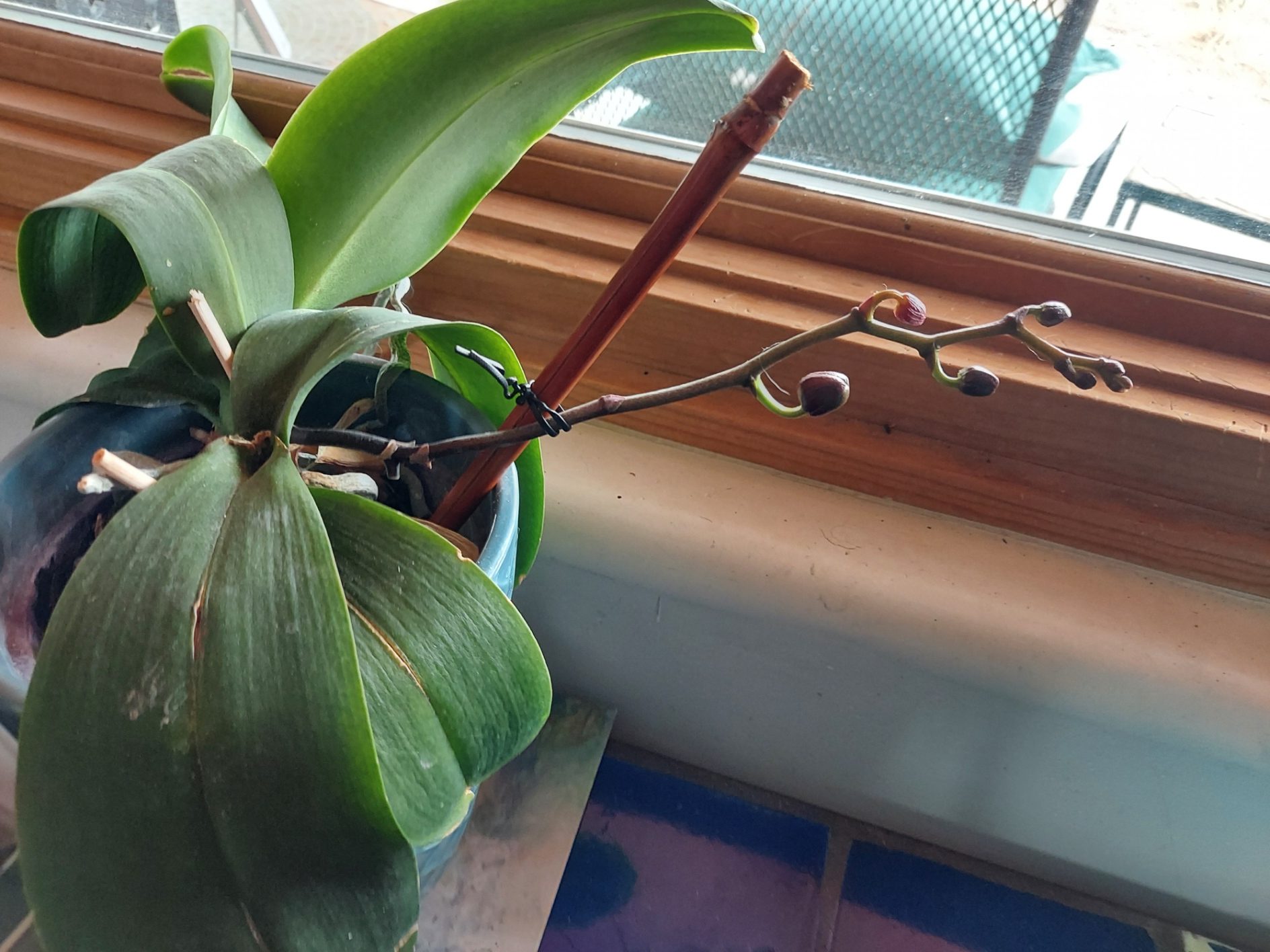
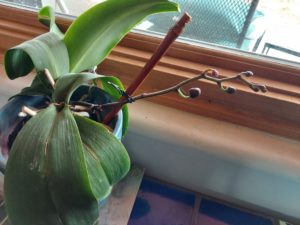
This week at the SFF Seven we’re discussing what we wish we’d known when we decided we wanted to write.
It’s an interesting question, and a fraught one. I first decided that being a writer would be the perfect career for me back in 1993. That’s almost 30 years ago, so it isn’t easy to think back to that younger self. At the time, I was completing a Ph.D. in neurophysiology and confronting the bald truth that I didn’t really want to be a research scientist. I sat myself down, meditated, and asked the question: if I took away all the if’s and’s and but’s, what would be the ideal life.
No one was more surprised than I was to hear that the answer was to be a writer. But I also knew it was a true answer and that, if I wanted to be happy, I had to do whatever it took to make that come true.
So, I cut bait on my Ph.D., got a Masters and a job as an editor/writer to start building my chops. I took night classes from visiting writers. I began writing, something, anything.
What do I wish I’d known then? It’s tempting to say I wish I’d known how long it would take before I truly began earning a living as an author. My conception then of how long it would take was absolutely the largest lacunae of ignorance in my hopeful moonscape. I thought it would be a couple of years, not a couple of decades. I totally thought I’d hit it big. I thought my steady progression of successes, for which I am grateful, make no mistake, would have a steeper upward trendline.
And yet… I’m actually glad the younger me didn’t know how protracted that effort would be, how studded with setbacks and pitfalls. Had I known, would I still have done it?
I don’t know.
Sometimes I think our ignorance at the outset of an ambitious enterprise works in our favor. Ignorance truly can be bliss, especially when it allows hope to flourish, hope that carries us through the difficult times.
Maybe what I really wish I’d known back when I made that decision is that it was the right one. But then, I knew that anyway.
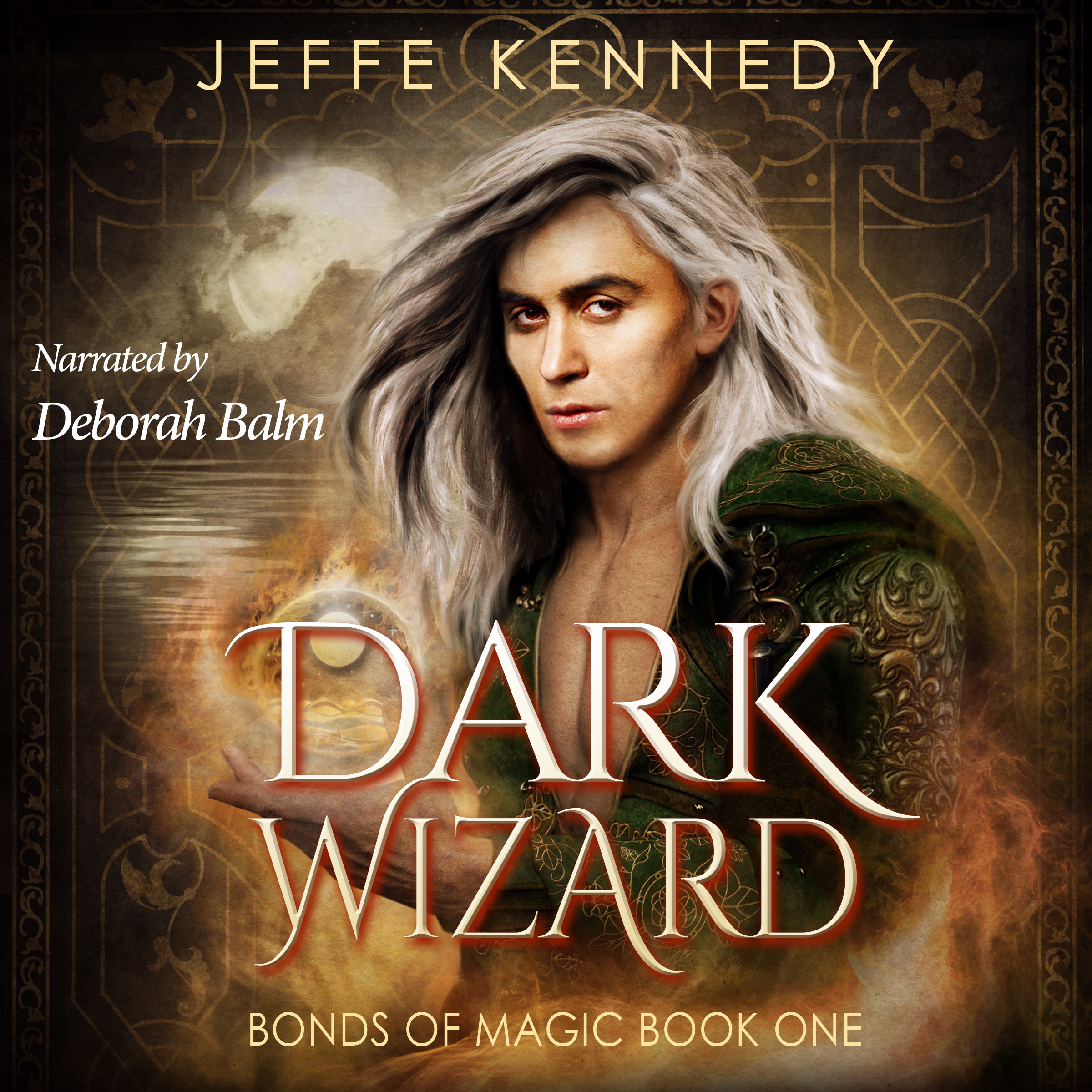
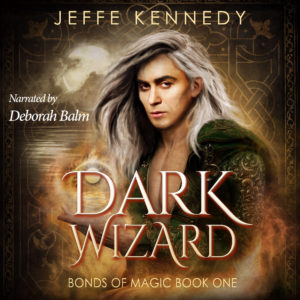
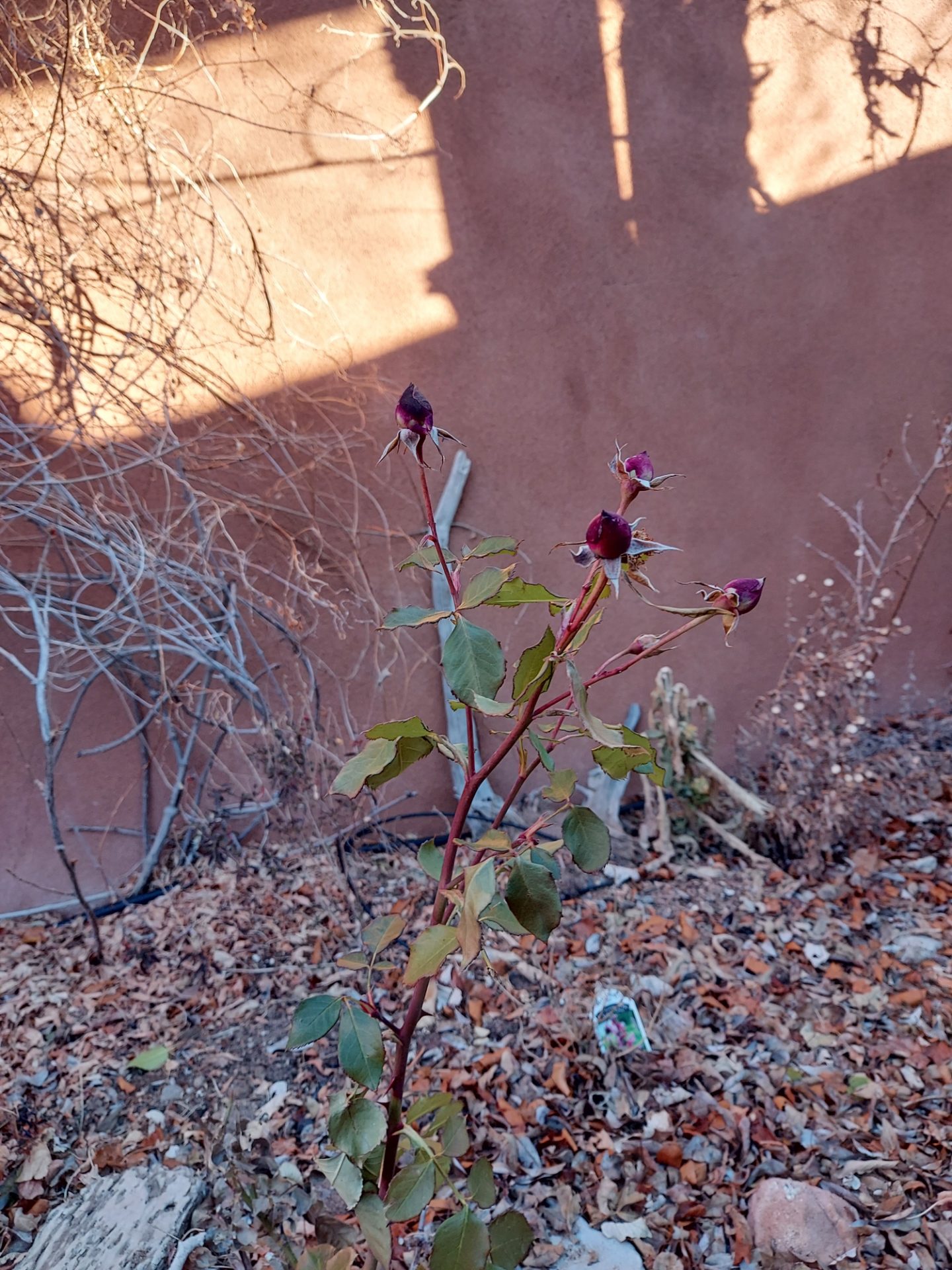

Our topic this week at the SFF Seven is, verbatim, On Your Mind (Winter).
So, I’m posting a photo I took this morning from the winter garden. We’ve had a mild winter, and the secret garden is walled and makes a protected microclimate, so I actually have a winter garden.
Some of you may know that I love to garden. I mention it in interviews when I’m asked what I do that isn’t reading or writing. Gardening is a big piece. It sounds like a small thing when I say it, but nurturing a garden, planning it, spending time in it, all shape how I live.
I became interested in the concept of a winter garden back when I lived in Wyoming and winters were so very bleak. The idea is to plan a garden with the entire season in mind. It’s easier to envision the spring flowers, the midsummer lushness, adding in the plants that bloom in the autumn, but thinking toward the largely leafless winter is a different kind of vision. What plants bring visual interest in their starker, hibernating states? What offers spots of color in a more monochromatic landscape?
Part of the trick is loving the winter garden for what it is, not trying to replicate the garden of warmer seasons.
I think this is a metaphor for a great deal in our lives, as gardens tend to be.


This week at the SFF Seven we’re talking about Contractor Best Practices. And already Charissa, James, and KAK have posted great articles about communication and clear expectations. I whole-heartedly ditto everything they said.
So, instead of reiterating, I thought I’d share my own favorite contractors. It’s a great opportunity to give them a shout-out. One of the best parts of being an author who self-publishes is that you become the source of work for other people. I love that I, by creating words, am a font which then flows money out to the people who do work for me. They are vital parts of my business and I’d hate to be without them.
These days, after years of honing my practices, they’re a pretty lean team.
My Assistant
First and foremost, my amazing assistant is the fabulous Carien Ubink, aka book blogger Sullivan McPig. Whenever someone asks what my assistant does for me, I reel off the list and then – for about half an hour afterward – I’m adding “Oh, and she also does this!” We’ve been working together for years now. (She could tell you how many, which is one of the things she does for me.) She’s the best.
My Cover Artist
While I occasionally use other cover artists, my go-to and favorite is Ravven. She’s done the majority of my covers and I hope will do many, many more. She has an uncanny ability to take my inadequate descriptions and hand me back a gorgeous cover that exceeds my imagination. She’s timely, helpful, goes the extra mile. No one else comes close to her in talent, skill, and clean business practices.
My Proofreader
Crystal Watanabe at Pikko’s House handles all of my editorial. She’s super fast, thorough, and a delight to work with. She also operates a business that offers the gamut of editorial services. I highly recommend checking out Pikko’s House.
My Formatter
Yes, I farm out my formatting – largely because my formatter, Paul at BB eBooks, is so fantastic. He accommodates my sometimes screechingly tight turnaround times, always doing a stellar job, and with a great attitude. There’s nobody I trust more to get the job done right.